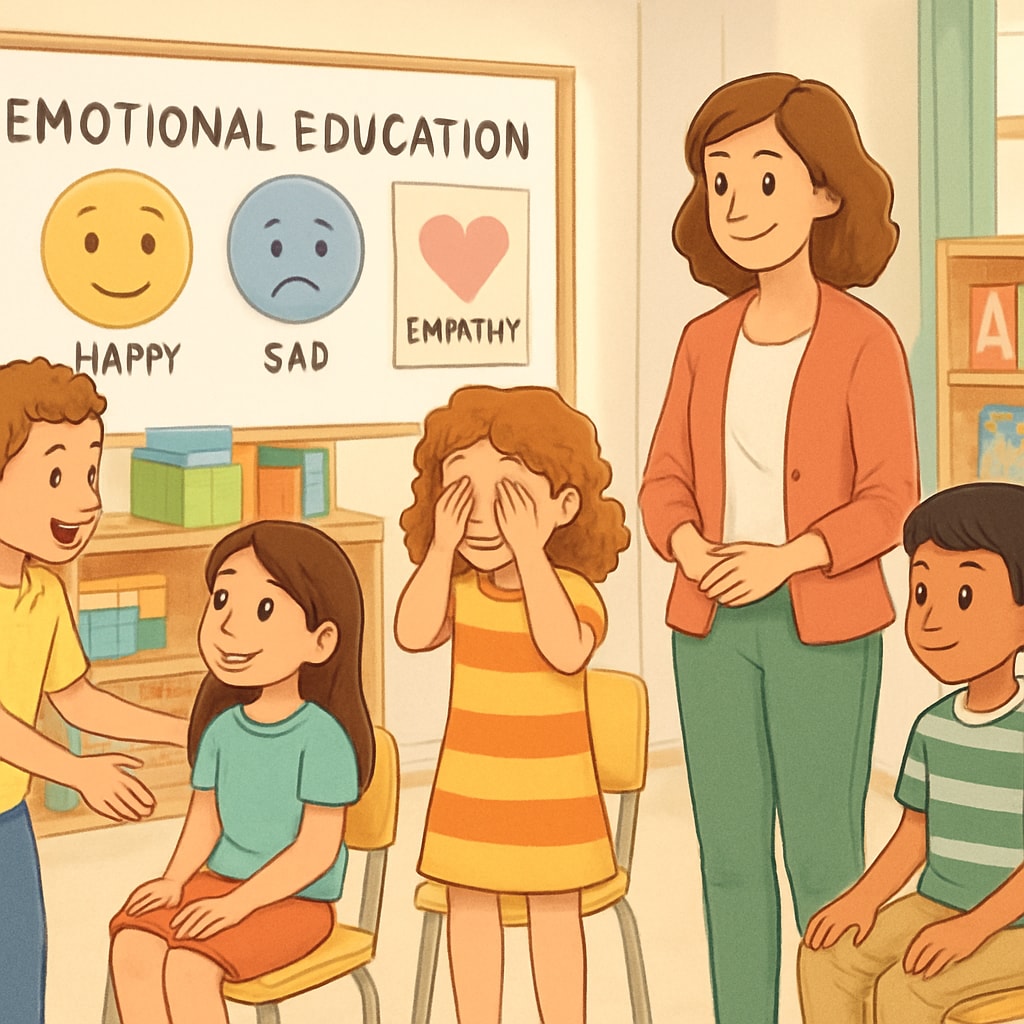Emotional education, child development, and emotion management are interconnected aspects of raising a generation that thrives emotionally and socially. In today’s fast-paced, high-pressure world, children face increasing emotional challenges. By integrating emotional education into K-12 curricula, schools and families can provide the tools necessary for children to develop emotional resilience, effective communication, and empathy. This article explores the importance of emotional education, its profound impact on child development, and how a collaborative approach between families and schools can shape a happier, more emotionally intelligent generation.
Why Emotional Education Matters
Emotional education refers to the process of teaching children to understand, express, and regulate their emotions. Unlike traditional academic subjects, it focuses on developing soft skills such as self-awareness, empathy, and emotion management. These skills are critical for navigating the complexities of modern life. According to Britannica, emotional intelligence is strongly linked to success in personal and professional relationships, making it a cornerstone of overall well-being.
Children with strong emotional education are better equipped to handle stress, resolve conflicts, and build meaningful relationships. This foundation also supports academic success, as emotionally balanced children are more focused and motivated learners. For example, programs like Social and Emotional Learning (SEL) have demonstrated significant improvements in both academic performance and classroom behavior.

The Role of Emotional Education in Child Development
Child development encompasses physical, cognitive, social, and emotional growth, with each element influencing the others. Emotional education is particularly significant because it lays the groundwork for the development of emotional intelligence, which includes skills like emotion regulation, interpersonal communication, and empathy. Research published by the American Psychological Association highlights that children who receive emotional education are more likely to develop healthy coping mechanisms and exhibit lower levels of anxiety and depression.
In addition, emotional education enhances children’s ability to manage their emotions constructively. For instance, they learn to recognize triggers for anger or frustration and respond with calm strategies instead of outbursts. This ability not only improves classroom dynamics but also prepares children for future challenges such as workplace stress or interpersonal conflicts.
Building an Emotional Education Framework at Home and School
For emotional education to be truly effective, it requires a coordinated effort between schools and families. Here are some practical steps to create a comprehensive emotional education framework:
- In Schools: Incorporate SEL programs into the curriculum, provide teacher training on emotion management techniques, and create safe spaces for children to express their feelings.
- At Home: Parents can model healthy emotional behaviors, encourage open conversations about feelings, and use everyday situations as teaching moments for empathy and emotional regulation.
- Community Support: Collaboration with mental health professionals and community organizations can provide additional resources and workshops for both parents and educators.
By aligning efforts in these areas, children can receive consistent messaging about the importance of emotional well-being, reinforcing their learning across different environments.

The Long-Term Benefits of Emotional Education
Investing in emotional education has long-term implications not only for individual children but also for society as a whole. Emotionally intelligent individuals are more likely to become empathetic leaders, collaborative team members, and compassionate citizens. They contribute to creating communities based on mutual respect and understanding, reducing social conflicts and promoting collective well-being.
Moreover, children equipped with strong emotional skills grow into adults who can manage stress, maintain healthy relationships, and pursue fulfilling careers. This ripple effect underscores the value of emotional education in shaping a brighter, more harmonious future.
As schools and families prioritize emotional education, they unlock the potential for children to lead happier and more balanced lives. By teaching essential skills such as emotion management, empathy, and interpersonal communication, we can nurture a generation that is not only academically accomplished but also emotionally resilient and socially conscious.
Readability guidance: Short paragraphs and lists have been used to summarize key points. Each section incorporates transition words like “for example” and “in addition” to maintain flow. Passive voice has been minimized, and long sentences have been limited to ensure clarity.


